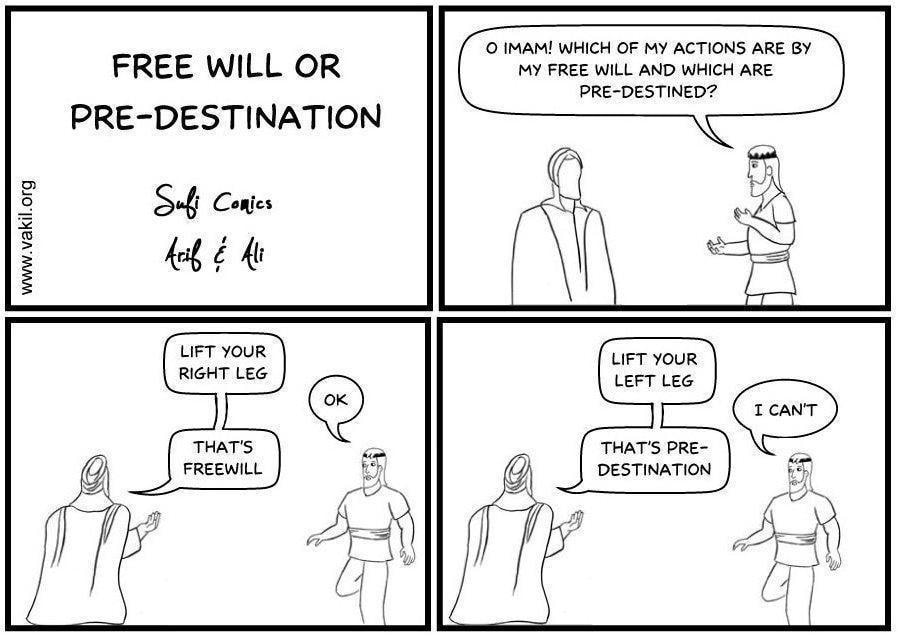 In order to answer this question we need to first make it clear what is free will in Islam. Some people mistakenly think, especially my experience with atheists, that in Islam when Muslims say ‘Allah has given us free will’ then it means that it is pure free will with no interference of Allah ﷻ whatsoever. According to their understanding, if there is interference of Allah ﷻ then that could not be free will. In Islam, we say that free will is 50% or half and there is no such thing as pure free will. The reason for that is because Allah ﷻ does intervene when and if necessary and that is His Mercy that He has not completely abandoned us to ourselves by giving us pure free will. To understand this concept better we have a visual illustration of an incident from the life of Imam Ali ibn abi talib (alaihi salaam). Someone asked him “O Imam which of my actions are free will and which are predestined?" To which Imam replied, “Lift your right leg” the man did it and then he was told “that is free will”. Then the Imam said to “lift the other as well.” which obviously the man could not. To which Imam replied, “That is your predestination.” Imam Ali (a.s) explained the extent of our free will in Islam and then what happens next is by the will of Allah. Our Islamic belief of rewards and punishments are not just based on free will or what some might call ‘pure free will’. According to a prophetic hadith: “Actions are based on intentions and you will be judged for your intention.”[1] My intention will make me do a certain action and that is all I have to worry. We care about intention and our ability to do the required actions; outcomes are in the hands of Allah ﷻ, we are not supposed to stress ourselves over what the future holds for us as long as we did the right thing and placed our trust in Him. That is what is called having imaan (faith) and tawaqqul (trust) in Allah ﷻ. The ultimate result of our action will always be good, either in this world or in the hereafter, even though the apparent results came out wrong, as long as our intention was pure and good, He will take care of us as He has said: “But perhaps you hate a thing and it is good for you; and perhaps you love a thing and it is bad for you. And Allah Knows, while you know not.”[2] References: [1] Sahih al-Bukhari 1 [2] Al Quran 2:216
0 Comments
Leave a Reply. |
AuthorZaid Shaw ArchivesCategories |
Proudly powered by Weebly
 RSS Feed
RSS Feed